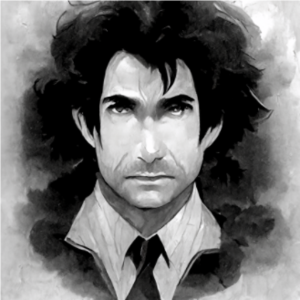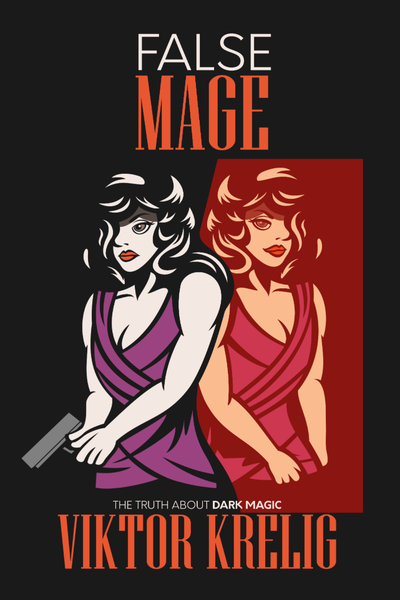XVII
On my way to Henry’s house, I kept doubting that I had given Tommy the wrong box, and that I was about to hand over the real jewelry box to Henry.
As with the one I had provided to Tommy, I placed the decoy in a small shipping box and overdid the tape. I considered writing a similar message, but I figured that for Henry and his kids, no warning was the best defense. Just a lot of tape to get through. Hardly worth the effort.
Their place was in the quietest part of an unimaginative suburb. People out here must have liked staying in their houses, because they sure as hell didn’t like going out.
I parked my old Mercedes Benz in their driveway. I hoped that my over-possessive mechanic would appreciate that I found the car a nice change of pace from the city street it usually sits on. Far less likely to get into a fender bender out here than on the narrow streets of New Carissimi.
With my hands full of a stack of journals and a ridiculously taped box, I pressed the doorbell of the house. Instead of a ring, it chimed an obnoxious tune. One of the kids answered. She was the older of the two. About seven or eight.
“Mr. Krelig?”
“That’s me. Your father said I could leave these items with you if he wasn’t home.”
A woman called from inside the house. “Is that Daddy’s friend?”
She appeared in the front hallway from behind the child.
Smiling, she said, “Oh hi, my name is Mage.”
Even after all I’ve seen, I still get paralyzed with fear when I see something unnatural. I stood on their front step motionless without acknowledging her greeting.
She put her hands on the girl’s shoulders. “Thank you for returning my things.”
This wasn’t Mage. She was too young, stood up straight, and walked with grace.
“No problem,” I said, handing over the journals. I wanted to ask when she got back.
“Is that my jewelry box in the package?” I was still holding it.
I could have died peacefully if the world had ended at that moment. But now I had a decision to make. Should I give it to her, or say that it’s something else? But then why would I have brought it to the door?
I flavored my response with a bit of surprise, “Oh, I almost forgot,” and handed the decoy over to the Gwenhwyfach without a clue of what she intended to do with it.
“Why is it wrapped like this?”
“Figured there was something valuable inside.”
She held it up to her ear and shook it. My heart sank. Was there something she could hear inside if she shook it hard enough? Or maybe she was imagining the trauma she was inflicting on her prisoner.
“Sounds like everything is in there. You didn’t open it, did you?”
“No ma’am, I’m no fool. I mean, you never open a woman’s jewelry box.”
She gave me a look. Not threatening, but she was calculating something unpleasant. If I had been trying to keep my knowledge of what was in the box a secret, I had failed. And why should it be a secret? I had read the journals and just gave them back to her.
She said, “I see we are of like mind.”
“I guess we are.” I could not get out of there fast enough.
“Do you play chess?”
“Play, yes. Win, no.” Leave now.
“Interesting. It’s an open game. Both you and your opponent have the same information, just a different perspective. That’s how people can ‘see ahead,’ there are only so many good moves to pick from and sometimes only one best move.”
What was she trying to tell me?
She left me wondering, because the next thing she did was thank me and close the door.
I should not have handed over the box. All the way back to my office, I told myself that over and over. I was so focused on that particular regret that another part of my brain decoded her whole bit about chess. Or at least, I thought what hit me was a very good chance of her intended meaning.
The Gwenhwyfach thought like Mage, but didn’t have her memories. It made it easy to predict Mage’s moves, and at some point she had figured out that Mage was going to kill her. Maybe she knew from the beginning. Self-preservation kicked in. And she knew there was something that Mage wouldn’t do to gain the upper hand. Mage learned magic on her own, but the Gwenhwyfach sought out a teacher. One who enjoyed a game of chess, even when there wasn’t a board.
The drive back to my office was silent after that realization. I bet Mage offered the Gwenhwyfach some hope at freedom, and when she opened the box, it pulled in Mage just as the fortune-teller had designed it to.
He hadn’t been playing both sides as Mage originally thought. He had only ever played on the side of the impostor.
Even if Mage’s offer of freedom had been made in good faith, I don’t think the Gwenhwyfach would have accepted. She didn’t want freedom. She wanted the same thing that Mage had always wanted. Family.
--Viktor Krelig











Comments (0)
See all